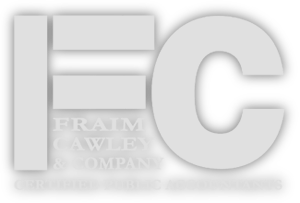“Free advice is often overpriced.” — E. C. McKenzie
In the age of the internet, it is increasingly easy to find advice and information on…pretty much every topic. I love it. If I want to find steps for a simple DIY project, information on some obscure piece of history, or literally almost any bit of trivia I would be interested in – it’s out there.
Most of us take this information at face value. And let’s be honest – what’s the risk? If the online advice is bad and our plants do not grow very well, we end up thinking that Henry VIII only had four wives, or our knowledge of world geography is horribly and woefully lacking because some elaborate online prankster put Australia a few miles from Manhattan…well, no great harm done.
So much of the information on the internet has been weeded through/vetted over time, we start to take it for granted that it is correct. And again, for most things the risk we expose ourselves to is minimal. For most things.
However, when it comes to our health for example, or our finances – do we really want to leave those to an internet article and chance? I deal with this somewhat in my business, but my financial/investment advisor counterparts cope with it much more. I’ll illustrate with an example in their world:
Robert Kiyosaki is regarded, on the internet and the DIY finance community, as a financial expert. He is revered by many and is looked to as a true authority. He is also…an idiot. His whole pitch for years was a “failsafe” way to build your real estate empire. It all worked ok for a while – during the “go-go” years of real estate. And then came the housing and real estate crisis and it all came unglued. Oh yeah, that plan of his clearly ended up working very well for all parties involved. (Insert sarcastic tone there.) Then in 2009 he came out with this article claiming that the 401k is “the biggest scam ever”. I won’t go into the reasons why his argument is incorrect and preposterous – that is another discussion altogether (although I do think that the fact that the article has been deleted by most of the sites that hosted it speaks for itself). But virtually all of his advice is uniform (call it “one size fits all” or “cookie cutter”) vague, and oftentimes completely incorrect. And remember, he is a “financial expert”.
Not everyone is as bad as him. Some of them actually have very good concepts behind their theories. But their advice is, by definition, uniform. They are appealing to a mass audience. They have to make it so their advice is general and applies to a majority. But when we are talking about your business or personal finances – do you really want to take the risk that your situation is not different than someone else (or that vague “everyone” to whom the article is addressed?)
And therein lies the issue. How much risk are we willing to take for “free” advice? Do we go to the doctor or do we go to WebMD? Consider, how much is that free (cookie cutter) advice going to cost us in the end? We live in an age where people have often been conditioned to believe that paying for the expertise of a professional is not necessary, or that personal and business finance matters are easily researched and understood by doing a quick Google search. “Pay someone to tell me what I can read on someone’s blog or in some magazine? That’s crazy!” Well…pennywise and pound foolish I say.
Look, I can buy some dental drills online and read a dentistry school textbook, but that doesn’t mean I’m going to try to fill my own cavities. And can I buy some legal forms at OfficeMax, but that doesn’t make me a lawyer. And by the same token someone can read some articles or blog posts online, but that doesn’t mean that they really are prepared to tackle the complexities of the financial world, be it in the tax world or the investment arena.
Now, it may sound as if I’m speaking out of both sides of my mouth. After all, you’re reading these thoughts of mine either in an email or on my website and blog. But the points that I make in these articles are not designed to be the end point of one’s financial and business planning needs. They deal with concepts and broad issues and are structured to be light years away from the “one size fits all” way of approaching matters.
My whole approach has always focused on personalized advice based on each individual’s unique situation. And each situation truly is unique. There may be principles that are used for most of them, but the application can vary greatly. As I have said many times before, that is why I love the advisory side of my business: taking just a few hours to dig into the bones of each individual or business’s particular situation and give advice that would not be possible otherwise.
The simple fact of the matter is that you cannot give general advice and have it work as well for people’s specific situations. It has to be individually tailored. That is how I work with my clients and how every professional (in any business field of endeavor) to whom I refer clients, works as well. It is the only way we feel confident that we know our clients and are providing the optimal advice.
Each situation varies. We all want to make sure we are working with someone who knows ours.
ONE SIZE DOES NOT FIT ALL
Please visit me online at FraimCPA.com or call me at (540) 314-0345 if you have any questions or would like to schedule your free consultation.
IRS Circular 230 Notice: To ensure compliance with requirements imposed by the IRS, we inform you that any federal tax advice contained in this communication (including any attachments) is not intended or written to be used, and cannot be used, for the purpose of avoiding penalties under the Internal Revenue Code.




